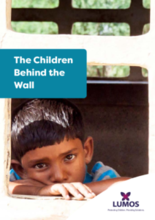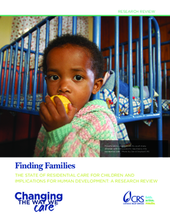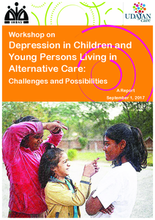Displaying 311 - 320 of 757
This study examined facial emotion recognition in 12-year-olds in a longitudinally followed sample of children with and without exposure to early life psychosocial deprivation (institutional care).
Seventy-eight postinstitutionalized (PI) children adopted at ages 17–36 months were assessed 2, 8, 16, and 24 months postadoption on measures of cortisol and parenting quality, and compared to same-aged children adopted from foster care (FC, n = 45) and nonadopted children (NA, n = 45).
This publication from Lumos describes the institutionalization of children the world over and its impacts, calling for an end to institutions and highlighting some of the particular groups of children who are most deprived of liberty.
This study examined the status of the State Program on Deinstitutionalization and Alternative Care (SPDAC), a public policy aimed at transforming 55 institutions covering 14,500 children during 2006–2016 in Azerbaijan.
Guided by an ideation-to-action theoretical framework for suicide prevention, the goal of the proposed research study is to describe and identify risk and protective factor correlates of youth suicidal behaviour among those at highest risk for suicide – orphans who reside in a low- and middle-income country (LMIC) institutional setting.
This review is a summary of the literature, from multiple disciplines, on residential child care and its deleterious effects on children.
This chapter aims to present a research grounded in the bioecology of human development that analyzed shelter institutions through the perceptions of children aged from 7 to 12 years in Brazil.
This video from UNICEF Rwanda shows some of the moving stories of children and their new families who have been brought together through the TMM initiative, which reintegrates children who have been living in institutions into families and the community.
This document provides a full report of the workshop on “Depression in Children and Young Persons living in Alternative Care: Challenges and Possibilities.”
This study examined visual recognition memory and executive functioning (spatial working memory, spatial planning, rule learning, and attention shifting) in 12-year-olds who participated in the Bucharest Early Intervention Project, a randomized controlled trial of foster care for institutionally reared children.



